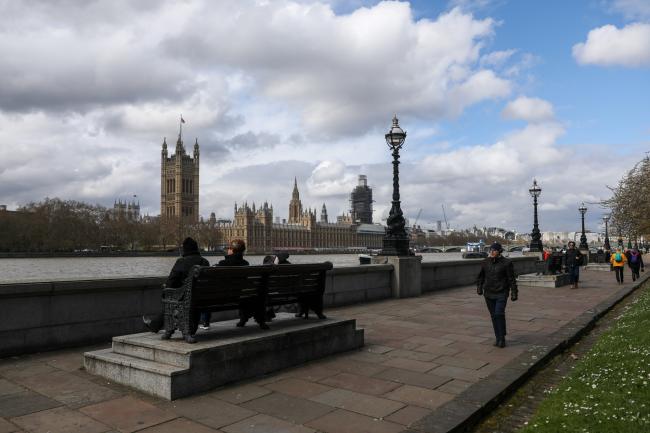Street Calls of the Week
(Bloomberg) -- Theresa May’s government held four and a half hours of talks with the opposition Labour party Thursday, seeking a Brexit outcome that could finally command a majority in Parliament.
Officials acting for the prime minister and Labour leader Jeremy Corbyn will continue with intensive talks Friday in a desperate bid to break the Brexit impasse, Number 10 Downing Street said.
With her options running out, May needs to get an agreement through Parliament that would allow the U.K. to leave the EU without having to take part in European Parliamentary elections next month. Unable to convince her allies to back her own deal -- Parliament has rejected it on three separate occasions -- she’s turned to Corbyn for help.
While offering the promise of arriving at some cross-party agreement that can get through Parliament, May’s decision to reach across the aisle has also stoked fury among her Conservative Party colleagues. Pro-Brexit Tories, set on their vision of a clean break with the bloc, attacked her for opening the door to Corbyn’s vision of a so-called soft Brexit.
Shifting Ground
With time running short, signs emerged that compromise could be within reach. Attorney General Geoffrey Cox, an influential Brexit backer in the government, said Thursday that he’d prefer entering into a customs union with the EU than no Brexit at all. While no conclusion was reached on Thursday, May’s team described the talks as “productive,” though Corbyn’s spokesman said they were “technical.”
The EU already agreed to extend the Brexit deadline once, from March 29 to April 12. To get another short extension, May will need to “provide clarity” to the other 27 leaders at a summit on April 10 on how she plans to move forward.
Ahead of those talks, German Chancellor Angela Merkel on Thursday vowed to try and avoid a no deal Brexit. During a visit to Dublin, she said she hoped May would make an offer to the EU next week, adding that an orderly Brexit is crucial.
If cross-party talks with Corbyn collapse, May has promised to give Parliament another set of options to vote on. Though two rounds of so-called indicative voting in the past fortnight have so far failed to deliver a majority for any scenario.
